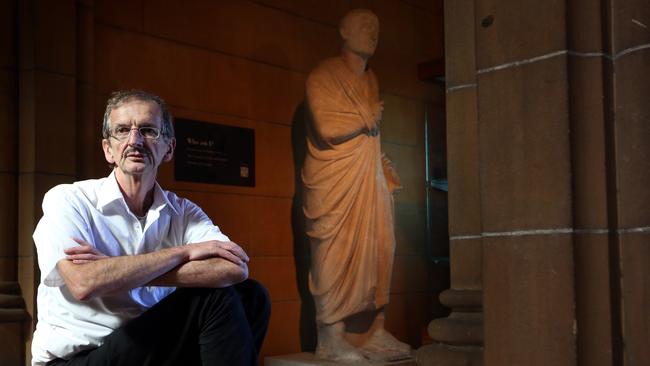To our last man: the pledge that placed us on a Great War footing
A SPEECH by former PM Andrew Fisher in July 1914 signalled that Australia would soon be at war.

WHEN opposition leader Andrew Fisher, a two-time former Labor prime minister, arrived in Colac in country Victoria on July 31, 1914, Australia was in the first week of an election campaign while the world edged closer to war.
Archduke Franz Ferdinand had been assassinated at Sarajevo on June 28, igniting a path to destruction.
The day before, the Australian parliament had been dissolved. Liberal prime minister Joseph Cook expected to campaign on domestic issues. That hope was shattered as the world teetered on the brink. Fisher’s speech — delivered 100 years ago today — to an evening crowd of about 1000 Labor supporters bursting with enthusiasm at Colac’s Victoria Hall, removed any doubt that Australia would soon be at war.
“Turn your eyes to the European situation and give the kindest feelings toward the mother country at this time,” Fisher said.
“I sincerely hope that international arbitration will avail before Europe is convulsed in the greatest war of any time.
“But should the worst happen after everything has been done that honour will permit, Australians will stand beside our own, to help and defend her, to our last man and our last shilling.”
The speech, by a respected former prime minister who had a track record on defence matters, including establishing the navy, helped catapult Labor to victory.
For his grandson, John Fisher, the speech was a “tragedy”. His grandfather’s vision of an antipodean workingman’s paradise turned to dust on the battlefield.
“It was a tragedy because he was a man of humble origins who represented a working man’s movement in a new democratic nation — who had led a majority government that passed nation-building legislation — but got swept up in the conflict between competing empires,” Mr Fisher told The Australian.
“As the impact of the war became known, with the slaughter of so many, I can only imagine he was heartbroken. He must have wept. He had wanted to create a workingman’s paradise. But the world was changed forever.”
Fisher’s speech at Colac helped to awaken a renewed sense of patriotism. It energised a spirit of adventure, with many young Australians seeing it as a call to defend Australia and Empire, and to fight for freedom. For many, the cause was a noble one. More than 400,000 Australian men would enlist in the coming war. Between 1914 and 1918, more than 150,000 were injured or captured. More than 60,000 were killed.
Also on the evening of July 31, Cook told an audience at Victoria’s Horsham Town Hall that “when the Empire is at war, so is Australia at war”. Fisher’s speech, however, had a more memorable turn of phrase.
Days later, on August 3, Cook’s government offered Britain an expeditionary force of 20,000 Australian troops to be “at the disposal” of the British government and sent “to any destination desired”. This was before Britain’s official declaration of war against Germany on August 4.
Labor won the election on September 5. By the time Fisher was sworn in as prime minister for a third time, on September 17, Australia had joined Britain officially at war. The Scottish-born Fisher, distinguished by his slim build and height, black moustache and sandy hair, was 52.
The focus of the government was organising Australia’s war effort, continuing what Cook had started. The navy was under the command of the British Admiralty. Wartime legislation extending Commonwealth power was enacted.
Fisher oversaw the deployment of the first troops to Gallipoli on November 1. He continued as prime minister until October 1915. With his health suffering amid the pressure of the war, the Labor caucus approved Fisher’s appointment as high commissioner to London. Firebrand politician Billy Hughes, an Empire enthusiast, was elected unopposed as Labor leader and became prime minister.
Fisher repeated his “our last man and our last shilling” catchphrase many times. When he died in London, in October 1928, it was widely remembered. Today, a small monument at Memorial Square in Colac recalls the speech as an “early expression of the ANZAC tradition”.
John Fisher never met his grandfather. But he remembers his grandmother, Margaret, a remarkable woman who participated in suffragette marches in London.
He greatly admires his grandfather but wants Australians to learn the lessons of history — its triumphs and tragedies.
Fisher is buried at Hampstead Cemetery in London. A memorial obelisk at the gravesite was unveiled in 1930 by British Labour prime minister Ramsay MacDonald. In a parliamentary tribute, Labor leader Jim Scullin described Fisher as a prime minister who “ruled the destinies of Australia”.
That destiny, as Fisher made clear a century ago, was that Australia would play its part in the Great War of 1914-18.



